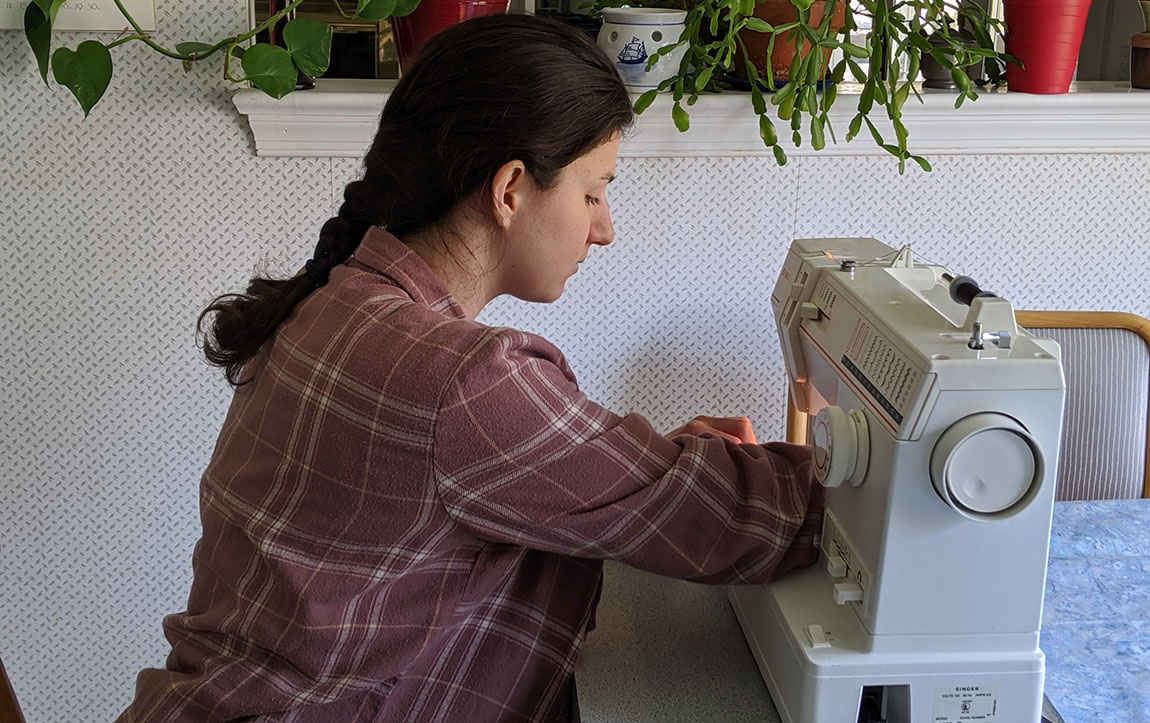Producing Protection
Public health student Hadar Re’em ’20 is helping to sew masks for Lehigh Valley Health Network.By: Meghan Kita Friday, April 3, 2020 08:16 AM
 Public health student Hadar Re’em ’20 sews a mask to be donated to Lehigh Valley Health Network. Photos courtesy Hadar Re’em.
Public health student Hadar Re’em ’20 sews a mask to be donated to Lehigh Valley Health Network. Photos courtesy Hadar Re’em.The last time Hadar Re’em ’20 used a sewing machine was during home economics class in middle school. Now that she’s a college senior studying public health, she’s using her mother’s machine to produce masks for healthcare professionals at Lehigh Valley Health Network (LVHN).
“Because I’m a public health student, I feel like I know so much more about the situation than the average layperson,” Re’em says. “I definitely feel this intense urge to do anything in my power that I can to help.”
Re’em has been a research scholar at LVHN the past two summers and has continued her work through the academic year via LVHN’s volunteer office. As the local COVID-19 crisis continued to escalate, LVHN asked its volunteers to remain home and to donate supplies (masks, hand sanitizer, disinfecting wipes) if possible. Once it was clear LVHN could still face a shortage of masks, it asked volunteers who could sew to start making them at home. (The CDC says homemade masks should be used as a last resort, but many hospitals are preparing to experience extreme shortages of personal protective equipment.)
Re’em and her mother—who has more sewing experience—heeded the call. Re’em estimates that each mask is taking them about 15 to 20 minutes to produce. “The hardest part is the cinching at the end,” she says. “If you don’t do it perfectly, it’s lopsided and awkward. If it’s something someone’s going to be wearing all day, you want to make sure it’s as perfect as you can get it.”

It’s an interesting time to be a public health student, Re’em says—she’s suddenly being asked to explain the COVID-19 situation to friends and family members. She has a good understanding of the systems involved in this crisis and what it will take to get us out of this. Instead of being paralyzed by this knowledge, she feels moved to act by it.
“You can choose to think about it as this big, scary situation or you can just do whatever you can to help out and hope that the people in power make the decisions that are the right calls,” she says. “You can speak your mind and tell your local representatives how you feel, but all you can really do is what you can do on the individual level.”
